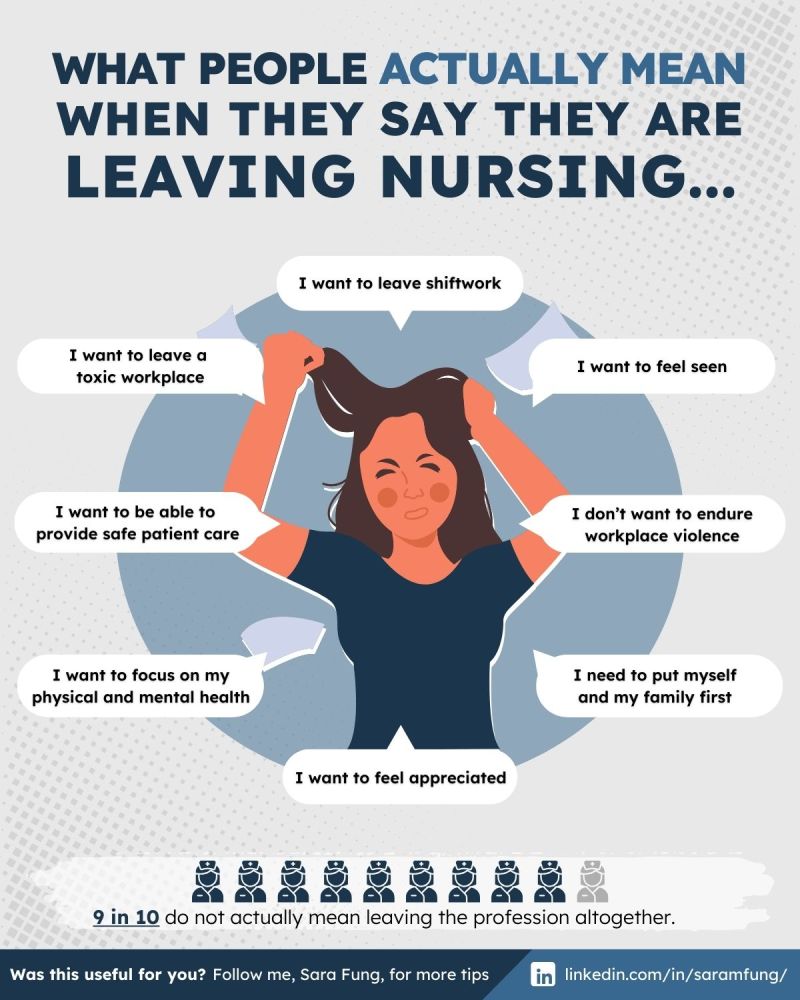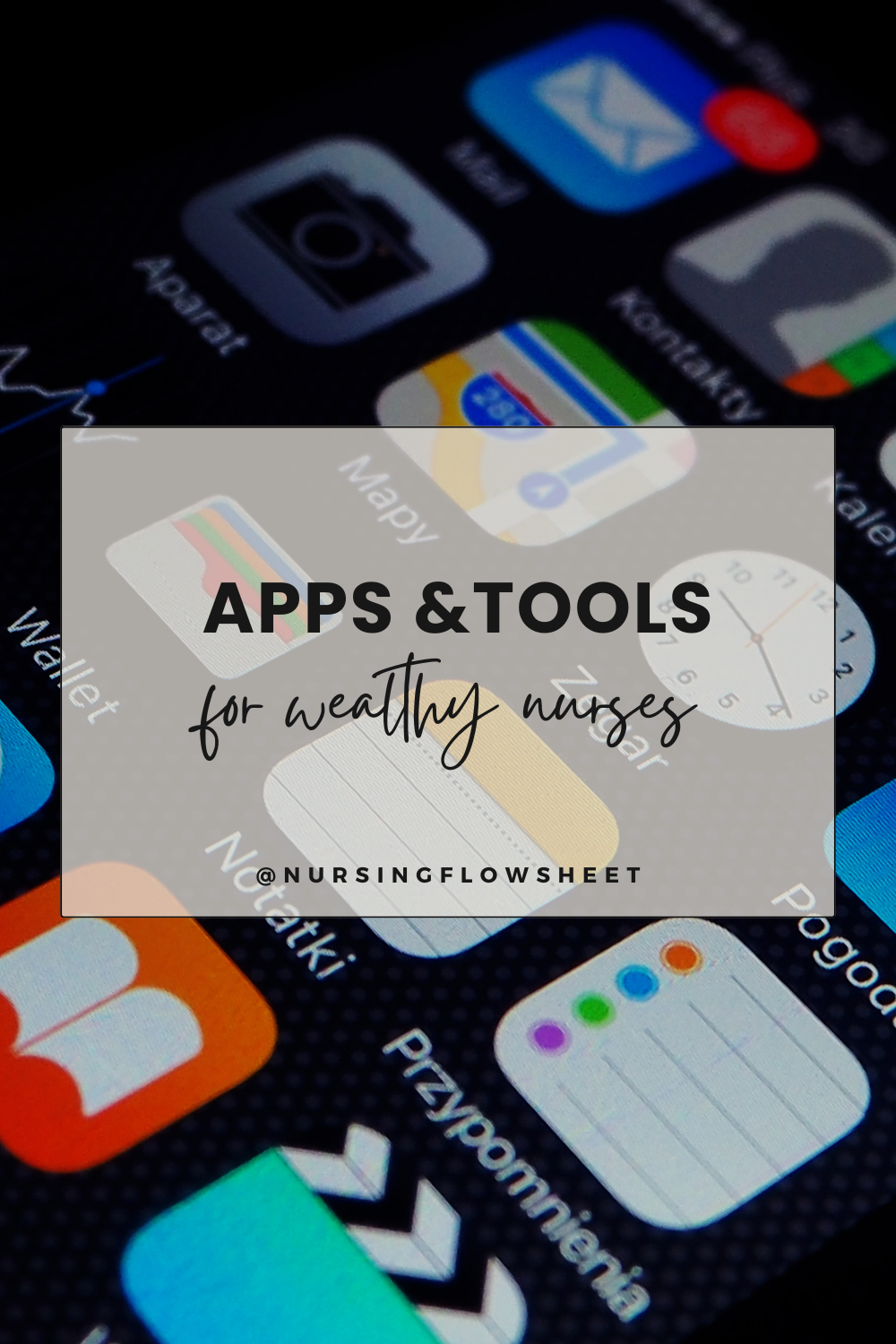Nursing is often described as a calling, a career that requires compassion, dedication, and resilience. Yet, despite the rewards, many nurses are choosing to leave bedside nursing. I left bedside nursing 8 years ago, and for the longest time, I thought that “I am not really a nurse anymore”. Most people are under the assumption that just because a nurse does not work at the hospital or clinic, that they “lose their skills” or they’re no longer a “real nurse“. However, nursing is diverse and there is so much more to this profession than just bedside nursing.
Understanding the reasons why most nurses leave bedside and learning how to optimize your nursing career through a strong resume and effective networking can help nurses navigate their professional journeys more successfully.
Why Nurses Leave Bedside Nursing

1. Burnout and Stress
One of the primary reasons nurses leave bedside nursing is burnout. The physical and emotional demands of caring for patients, often in high-stress environments, can lead to significant exhaustion. Nurses frequently work long hours, face understaffing issues, and deal with critical patient situations that take a toll on their mental health. Over time, the constant pressure can result in burnout, prompting nurses to seek less stressful roles.
2. Work-Life Balance
Achieving a work-life balance is a challenge in many professions, but it can be particularly difficult in nursing. Shift work, including nights, weekends, and holidays, can interfere with personal and family life. Many nurses leave bedside roles to find positions that offer more regular hours and better opportunities to balance work with personal commitments.
3. Physical Demands
Bedside nursing is physically demanding. Nurses are on their feet for long periods, often lift and move patients, and perform tasks that can lead to physical strain and injuries. Chronic pain and musculoskeletal problems are common among nurses, leading some to transition to roles that are less physically taxing.
4. Emotional Toll
Nursing involves not only physical care but also emotional support for patients and their families. Witnessing suffering, dealing with death, and providing comfort in difficult times can be emotionally draining. The emotional toll of these experiences can lead nurses to seek roles that are less emotionally challenging.
5. Career Advancement
Bedside nursing, while critical, often has limited opportunities for career advancement. Nurses seeking to progress in their careers may leave bedside roles to pursue advanced degrees, move into management or administrative positions, or specialize in areas that offer more upward mobility.
Here are some jobs that are non-traditional, non bedside nursing jobs.

How you Can Optimize your Nursing Career
Despite the challenges, nursing offers numerous opportunities for growth and advancement. Optimizing your career involves creating a strong resume, effective networking, and continuous professional development.
Crafting a Strong Resume
A well-crafted resume is essential for advancing your nursing career. Here are some tips to ensure your resume stands out:
1. Highlight Your Experience
Your nursing experience is your greatest asset. Detail your clinical experience, emphasizing your responsibilities and accomplishments. Use specific examples to demonstrate your skills and the impact you’ve had on patient care. For example, instead of saying, “Provided patient care,” you might say, “Managed care for a 20-bed medical-surgical unit, improving patient satisfaction scores by 15%.”
2. Showcase Your Skills
In addition to clinical skills, highlight other relevant skills such as leadership, communication, and problem-solving. Include certifications, special training, and any advanced skills you possess. For example, if you have certification in advanced cardiac life support (ACLS) or pediatric advanced life support (PALS), make sure these are prominently displayed.
3. Use Keywords
Many employers use applicant tracking systems (ATS) to screen resumes. Use keywords from the job description to ensure your resume passes through these systems. Keywords might include specific nursing skills, certifications, or experience with particular patient populations.
4. Professional Summary
Start your resume with a professional summary that highlights your experience, skills, and career goals. This brief section should give employers a snapshot of who you are and what you bring to the table.
5. Education and Certifications
List your educational background and any certifications you hold. Include the name of the institution, the degree or certification earned, and the dates attended.
Networking for Career Advancement
Networking is a powerful tool for career advancement. Building and maintaining professional relationships can open doors to new opportunities and provide support and guidance throughout your career.
1. Join Professional Organizations
Joining professional nursing organizations, such as the American Nurses Association (ANA) or specialty-specific groups, can provide valuable networking opportunities. These organizations often host conferences, workshops, and other events where you can connect with other professionals in your field.
2. Attend Conferences and Workshops
Attending conferences and workshops allows you to meet other nurses, learn about new developments in your field, and gain continuing education credits. These events often include networking sessions where you can exchange ideas and experiences with peers.
3. Utilize Social Media
Social media platforms like LinkedIn can be powerful networking tools. Create a professional profile, join nursing groups, and connect with colleagues and industry leaders. Share articles, participate in discussions, and showcase your expertise.
4. Mentorship
Finding a mentor can provide valuable guidance and support. A mentor can help you navigate your career, offer advice, and connect you with other professionals. Likewise, consider mentoring less experienced nurses to build your network and give back to the profession.
5. Volunteering
Volunteering for committees, task forces, or community health initiatives can help you build connections and gain experience. These activities also demonstrate your commitment to the profession and can be a valuable addition to your resume.
Check out this interview I had with Sara Fung, founder of The RN Resume.
Continuing Professional Development
Continuous learning and professional development are crucial for career advancement in nursing. Staying current with the latest practices, technologies, and research can enhance your skills and make you a more competitive candidate for advanced roles.
1. Advanced Education
Pursuing advanced degrees, such as a Master of Science in Nursing (MSN) or Doctor of Nursing Practice (DNP), can open doors to higher-level positions. Many advanced practice roles, such as nurse practitioner, clinical nurse specialist, or nurse educator, require advanced degrees.
2. Specialty Certifications
Obtaining specialty certifications can enhance your expertise and marketability. Certifications in areas like critical care, oncology, pediatrics, or geriatrics can demonstrate your commitment to your chosen specialty and improve your career prospects.
3. Continuing Education
Participate in continuing education courses to stay updated on the latest developments in nursing. Many employers require a certain number of continuing education hours to maintain licensure, and these courses can also help you expand your knowledge and skills.
4. Online Learning
Many online platforms offer courses and certifications that can enhance your skills and knowledge. Websites like Coursera, edX, and the American Nurses Association offer a variety of online courses in nursing and healthcare.
5. Research and Publications
Engaging in research and contributing to publications can enhance your professional reputation. Consider conducting research in your area of interest and submitting articles to nursing journals. Presenting your findings at conferences can also increase your visibility in the field.
Conclusion
While the challenges of bedside nursing are significant, there are numerous opportunities for nurses to advance their careers and find fulfilling roles within the profession. By understanding the reasons behind the trend of nurses leaving bedside roles, crafting a strong resume, effectively networking, and committing to continuous professional development, nurses can optimize their careers and achieve their professional goals.
The nursing profession is diverse and dynamic, offering a wide range of paths to explore. Whether you choose to stay at the bedside, move into administration, education, or a specialized field, the skills and experiences you gain as a nurse are invaluable. Embrace the opportunities for growth, seek out new challenges, and continue to make a positive impact on the lives of your patients and the healthcare system as a whole.







